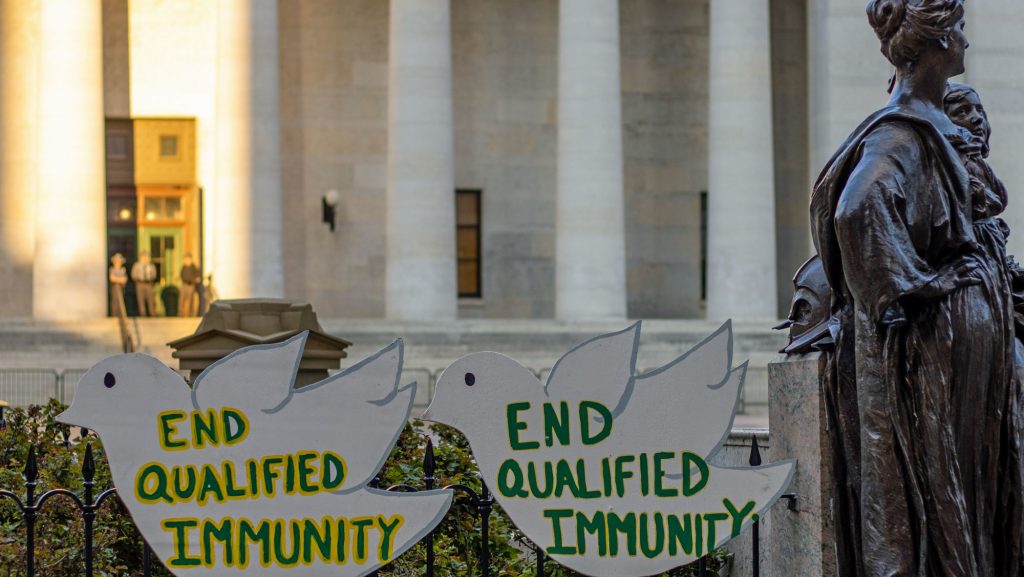Created Equal: How police misconduct is protected through ‘qualified immunity’
Justina Giglio July 9, 2024Joanna Schwartz, one of the country’s leading experts on police misconduct litigation, joined the show to discuss the problems with the doctrine and how to address them.

Two signs read "End qualified immunity" during a Black Lives Matter protest held outside the Ohio Supreme Court in Columbus, Ohio, July 2021.
For decades, the doctrine of qualified immunity has protected law enforcement and other government officials from being held accountable when they violate individuals’ constitutional rights.
The rule specifically protects officials from personal consequences as long as they were acting in good faith.
The U.S. Supreme Court introduced the doctrine in 1967’s Pierson v. Ray to protect police officers from financial liability after they arrested 15 clergy members for breaching the peace after they attempted to use a segregated waiting room at a bus station.
The court revised and expanded the doctrine in 1982 by eliminating the requirement that officers must have acted in good faith and requiring that officers must have violated “clearly established law” to forgo immunity. However qualified immunity protections have developed over time to value precedent over good faith.
This means that government defendants are heavily protected by the court, even when acting in bad faith, because extremely factually similar cases have to exist for a case to be ruled against qualified immunity. Precedent is also difficult to establish because lower courts across the country interpret and apply the doctrine differently.
Joanna Schwartz, one of the country’s leading experts on police misconduct litigation, joined Created Equal on Tuesday to discuss the problems with qualified immunity and how to address them.
Subscribe to Created Equal on Apple Podcasts, Spotify, Google Podcasts, NPR.org or wherever you get your podcasts.
Guest:
Joanna Schwartz is a professor of law at UCLA School of Law and author of “The Case Against Qualified Immunity.” She says that qualified immunity is a bureaucratic issue, where other systemic shortcomings allow for police officers and other government defendants to get away with misconduct.
“There’s a whole bureaucracy that is enabling this kind of mistreatment to occur. And I think, in some ways, it becomes complicated to figure out how to hold someone responsible when what we’re really talking about are systemic harms,” she said. “I think that’s more complicated, but also deeply important assessments and reckonings need to be had, because ultimately, that is where I think change can occur at the highest levels.”
Listen to Created Equal with host Stephen Henderson weekdays from 9-10 a.m. ET on 101.9 WDET and streaming on-demand.
